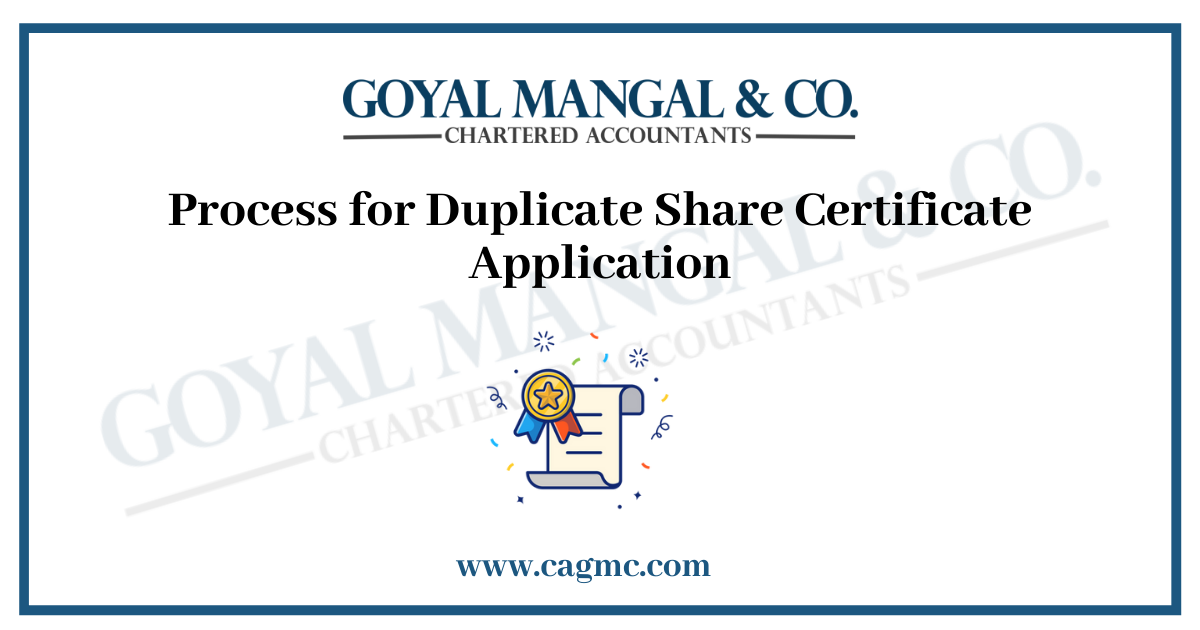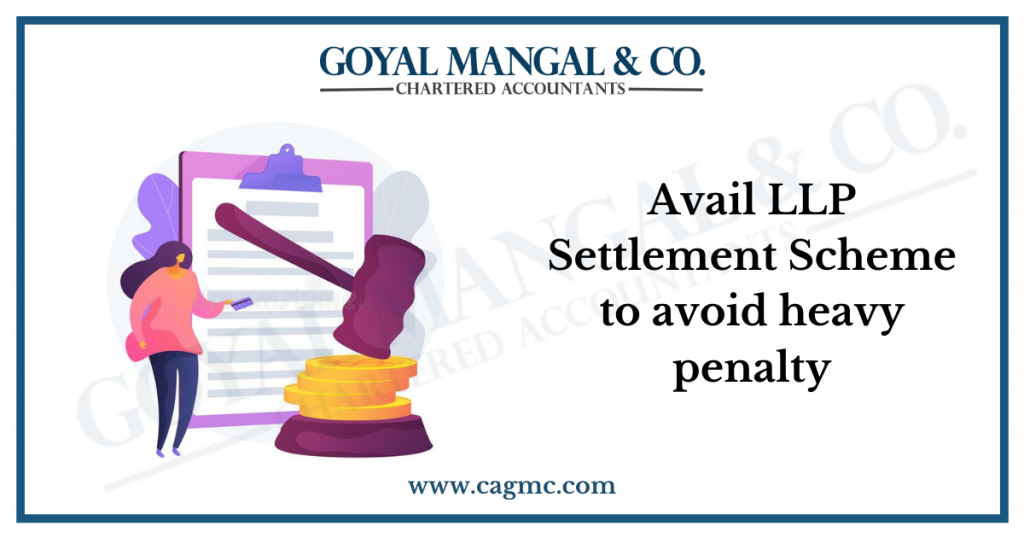
When a shareholder loses his or her share certificate, the shareholder and the corporation in which he or she owned shares may suffer significant financial losses. Under Section 46 of the Companies Act, 2013, and Rule 6(2) (a) to (c) of the Companies (Share Capital and Debentures) Rules, 2014, duplicate share certificates can be issued to minimize any needless loss to the firm and its shareholders. Let us discuss in brief about Process for Duplicate Share Certificate Application.
|
Table of Content |
Share Certificate
A share certificate is a document that certifies a shareholder’s or beholder’s ownership of a company’s shares. It serves as prima facie proof of the individual’s ownership of the shares. When a share certificate holder loses or misplaces the original, the company will issue a duplicate share certificate.
A company issues a share certificate to ensure that a person is the registered owner of the company’s shares as of the certificate’s issuance date. A company’s share certificate serves as prima facie proof that a person is the owner of the company’s shares. The misplacing and loss of share certificates will have a financial impact on shareholders since there will be no proof of ownership. As a result, if the original share certificate is missing or lost, the corporation will produce a copy.
A duplicate share certificate will be issued by a firm if the original certificate:
- Has been shown that it has been lost or destroyed.
- Has been disfigured, vandalised, or ripped and has been turned in to the firm.
When a Share Certificate Is Lost or Misplaced, What Should You Do?
If a shareholder’s share certificate is missing, the shareholders and the firm must take the measures outlined below:
- The shareholder must notify the corporation of the lost or missing share certificate as soon as possible.
- You may communicate the information about the lost or missing share certificate by sending a letter to the company’s address or emailing the company.
- The shareholder must give information about the lost or missing share certificate, such as the shareholder’s name, folio number, address, and share certificate number.
When a share certificate is missing, a corporation must take the following actions:
- When a corporation gets notification of a lost or missing share certificate, it must halt all share transfers for at least 30 days to avoid any unlawful or fraudulent transfer.
- After completing the necessary procedure and verifying the shareholder’s identification, the corporation shall take the shareholder through the process of obtaining a duplicate share certificate.
Requirement of Documents for Duplicate Share Certificate
There are requirement of following documents:
- Non-judicial stamp paper indemnity bond agreement
- A non-judicial stamp paper affidavit attested by a Notary Public/Special Executive Magistrate.
- A police report was filed with the following information concerning the misplaced share certificate:
- The name that appears on the share certificate.
- The share certificate number
- The share certificate’s folio number.
- A unique number of shares.
- Newspaper advertisement on the loss or misplacement of the share certificate.
- Proof of the shareholder’s identification and residency.
Process for Issuing Duplicate Share Certificates
The following is the procedure for obtaining a duplicate share certificate:
- The shareholder should submit an application to the corporation for the issuance of a duplicate share certificate together with the necessary papers. The shareholder whose share certificate has been lost or misplaced should sign the documentation supplied to the corporation.
- When the application is received, the corporation will begin the process of issuing a duplicate share certificate.
- The duplicate share certificate must be issued with the approval of the company’s board of directors.
- While approving the issuance of a duplicate share certificate, the Board Committee (“Board”) should consider the following:
- The Board should collect fees for issuing duplicate share certificates, but the payments should not exceed Rs.50 per share certificate.
- The Board shall take into account the out-of-pocket expenditures incurred while evaluating the evidence provided by the shareholder when issuing the duplicate share certificate.
- The corporation will review all documentation before issuing the share certificate to the shareholder.
- A publicly traded business must provide a duplicate share certificate within 45 days of receiving the paperwork.
- An unlisted firm must provide a duplicate share certificate within three months of receiving the paperwork.
- When the firm produces a duplicate share certificate, entries should be made in Form SH-2’s ‘Register of Renewed and Duplicate Share Certificate.’
- The Certificate should include the phrase ‘Duplicate issued in lieu of Share Certificate No…,’ and the term ‘Duplicate’ should be stamped or written in block letters on the share certificate.
- The Register of Renewed and Duplicate Share Certificates shall be held at the company’s registered office or where the company keeps it’s Register of Members, or it can be kept by the company secretary or any person authorised by the Board of Directors for that purpose.
Importance of Share Certificate
All legal proceedings need proof in the form of a document. After purchasing shares in a corporation, share certificates must be issued as proof of the individual’s ownership of the company. This is issued by the company’s owner who is selling shares in the market.
The Indian Companies Act, 2013 requires purchasers or companies to give share certificates when the establishment of ownership is complete.
Penalty
If a business fails to comply with regulations pertaining to the issuance of share certificates, the company will be subject to a fine not less than INR 25,000 but not less than INR 5, 00,000, and each defaulting officer of the company will pay a fine, not less than INR 10,000 but not less than INR 1, 00,000.
Takeaway
In conclusion, we can say that, when purchasing shares in any company, the share certificates are more than simply a piece of paper; they are proof of ownership of the purchase of the shares and hence should be taken care of responsibly.


